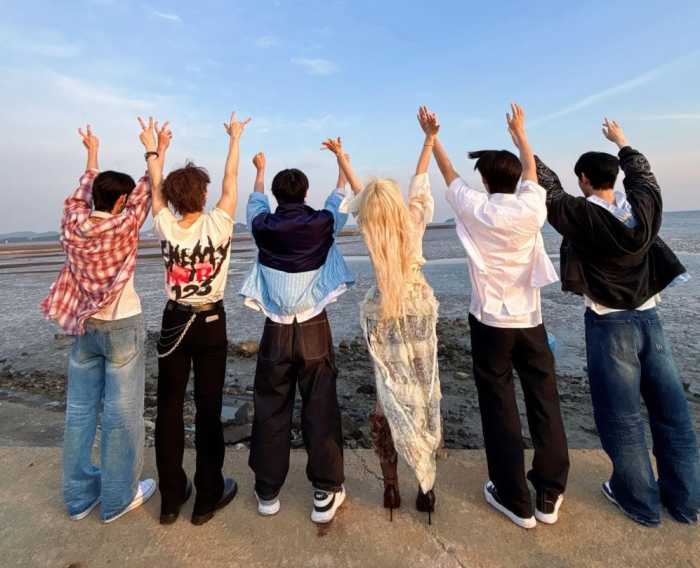Cate Blanchett and Robert Redford have amassed a combined three Academy Awards and 10 nominations, not to mention six Golden Globes, a host of BAFTAs and plenty other accolades.
They are Hollywood royalty and show business icons, and their presence in a movie is a guarantee that the film in question will be, at minimum, interesting and worthy of discussion.
Their first joint venture as co-stars is awash in provocative ideas and ripped-from-the-headlines details. In “Truth,” opening Friday, Blanchett plays former “60 Minutes” producer Mary Mapes, who was fired in the wake of the discredited 2004 Killian documents report on George W. Bush’s Air National Guard record that also cost Dan Rather (Redford) his job.
The legends had plenty to say about the project, an adaptation of Mapes’ book about the experience, the media and more when amNewYork sat down with them for a joint interview in Manhattan recently.
Why is this a story worth telling?
Cate Blanchett: The story got hung up on the hitch that was the documents. But there’s a difference between the role of the lawyer and the role of the journalist, I always thought, and the journalist’s job is to ask provocative questions. The question regarding his National Guard service had long been socialized in Texas. Mary and Dan weren’t the only people who were chasing that story, who were aware of that story. But I think the truth is, there’s many, many different perspectives that go into making the truth. What I think is interesting about this film is, yes it’s told from the perspective of Mary Mapes, which certainly wasn’t told at the time and so that’s fresh. But it’s very prescient. There was a real fork in the road back in September 2004 when this story was aired. It’s like scientific research. It moves at such a pace that our sense of morality lags way behind it. We have unquestionably, unthinkably allowed the proximity between the political arena, the media and corporate America, to have an unhealthy intersection without us as a readership, as citizens to work out how we feel about that.
Robert Redford: The landscape’s changed. The film portrays the landscape as it was then. It allows you as an audience to compare that with now. The landscape has now changed to the point where you have a much heavier footprint of corporations.
The same logic applies to entertainment journalism, where the Oscar horse race has largely supplanted in depth writing about movies, for example.
CB: There used to be some critics out there, 10 years ago let’s say, who really moved the needle. And now it’s the 25 percent or the 65 percent on Rotten Tomatoes. Not that we don’t love that or hate that, but where does the longer arc of thought exist? Rapid-burn assessments of things, caption news, is fine, as long as we’re not just reading the headlines. It’s beautifully delivered and a beautiful piece of writing where Dan is saying he’s going to step down as anchor and talks about being there at the moment when news made money.
RR: It’s a really key point in time and it’s interesting that the way things have changed, if you think back to that time and just before that time, you had a time in television when anchors were there — Kronkite, Brokaw, Jennings, whoever, Huntley, Brinkley — you were with their face the whole time. You had time. Now, you have a face competing with tape going underneath it and telling you a different story. Then it jumps over here and jumps over there. So the soundbite has become the norm. … So where are you going to get a real value? It seems to me that documentaries is maybe the new long form journalism.
CB: I think that’s right. It’s where people deeply investigate a subject matter and people can attend to it.
Twitter has even further exacerbated this.
CB: When Stephen Fry is tweeting it’s like a hiaku. It’s when it becomes the dominant voice. Or I’m watching mainline news and suddenly I’m being told what someone has tweeted about something. I actually want to know what the [expletive] is going on. Let’s start from that, then maybe we can have the commentary.
When you’re playing real characters, do you seize on a specific singular detail that illuminates something, or is it more of a bigger picture thing?
CB: It depends. I don’t know about you, Bob. Sometimes it’s an image. Sometimes it’s something someone says. Sometimes it’s something that another actor says that triggers it off. For me, I think this time — when I read [writer-director] Jamie’s [Vanderbilt] script and I ate it alive, it just goes like a freight train, it’s a brilliant piece of writing, and a lot of the direction you could tell was already inside the script, so you knew it was going to be something, if I didn’t screw it up, and you’d save the day, Bob. I went on the Internet and had a look at Mary, and when I met her, I found it so difficult to reconcile this locked-down, defensive person I’d seen giving interviews in the wake of the disaster, the scandal, and then this incredibly vital, vivacious, positive quip-a-holic. I decided, somewhere between those two states lies Mary.
RR: You start with one thing and that can lead to another thing or it can broaden to something bigger. It’s better to start with one little thing, I think, and then it will be natural. For me, that’s important. Authenticity, I think, is really important in a character and the actor’s responsibility, to be authentic to that character. … The thing that impressed me about Dan [when we first met in the 1970s], he always seemed like an old-fashioned man. He was eager to dig in and get his stuff, but he kept calling me, “Well, Robert Redford.” I said, “You can call me Bob.” But then I realized, that’s sort of who he is. He’s a very decent, polite man with an undercurrent of, he really wants to get to the truth. … I thought, “That’s really interesting.”
CB: And really emotional, too. And I think Mary is as well. You think about journalists, you have to be on the spectrum frankly to be able to ask questions, I think; you get to do that forensic stuff in a genteel way as an actor. You get to provoke and ask questions of the character. But to actually front up as an investigative journalist and ask the questions that nobody else has the chutzpah to ask. So you think of them as being hardened individuals, but they have soft cores. I think that’s where this crisis got them. It got them in the solar plexus, because they had given everything to an organization and to an ideal and that all backfired.

































